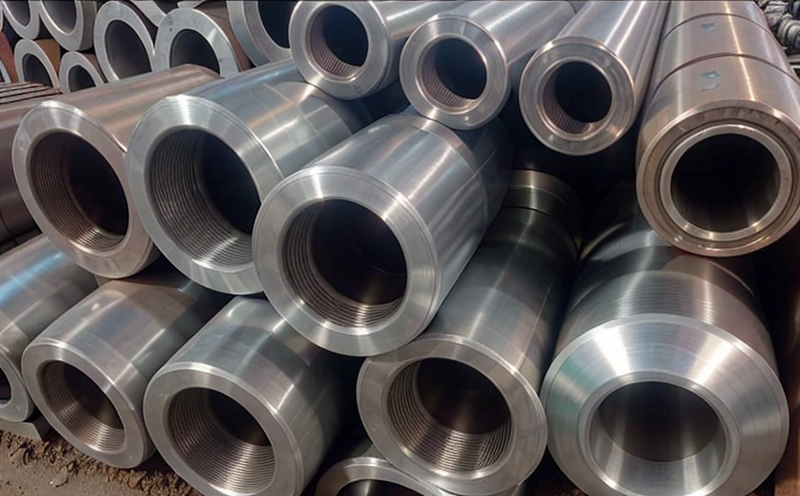DIN EN 60068-2-38 Damp Heat Cyclic Test
The DIN EN 60068-2-38 test, commonly known as the Damp Heat Cyclic Test, is a crucial procedure for assessing the durability and reliability of ferrous metals and alloys used in HVAC equipment. This test evaluates materials' resistance to environmental stressors that can lead to degradation over time.
The cyclic nature of this test simulates real-world conditions where components are exposed to fluctuating temperatures and humidity levels. The test is particularly relevant for HVAC systems operating in environments characterized by high humidity, such as coastal areas or tropical climates. By subjecting materials to repeated cycles of damp heat, the test provides insights into potential failure points that may arise during service life.
The test procedure involves exposing samples to a sequence of temperature and humidity conditions. Typically, this includes a dry period followed by a humidification phase, then returning to a lower temperature for drying. The process is repeated multiple times over the course of several days or weeks, depending on the specific test requirements.
Materials commonly tested include structural steels, stainless steel alloys, and cast iron components used in HVAC systems such as heat exchangers, condensers, and evaporators. The test helps ensure that these materials can withstand environmental stresses without compromising performance or integrity.
The DIN EN 60068-2-38 standard is widely recognized for its rigor and applicability to a variety of industrial sectors, including HVAC. Compliance with this test ensures product reliability, which is critical in industries where equipment failure can lead to significant operational disruptions and safety hazards.
- Materials Tested: Ferrous metals and alloys used in HVAC systems.
- Conditions Simulated: Fluctuating temperatures and humidity levels that mimic real-world environmental conditions.
- Objective: To evaluate the durability and reliability of materials under cyclic damp heat stress.
Applied Standards
The DIN EN 60068-2-38 test is based on international standards that provide a robust framework for conducting the test. The primary standard used in this context is DIN EN 60068-2-38, which specifies the procedure for damp heat cyclic tests. This standard ensures consistency and reliability across different testing laboratories.
Other relevant standards include ASTM E1527, which provides guidelines for assessing environmental conditions that can affect materials, and ISO 9227, which focuses on the corrosion resistance of stainless steel in saline environments. These standards complement each other to provide a comprehensive approach to material testing.
The use of these international standards ensures that test results are comparable across different regions and laboratories. Compliance with such standards is essential for manufacturers aiming to meet global quality and safety requirements, especially when targeting export markets or adhering to local regulations.
Why Choose This Test
- Comprehensive Durability Assessment: The test provides a thorough evaluation of materials' resistance to cyclic damp heat stress, ensuring long-term reliability.
- Industry-Recognized Standards: Compliance with DIN EN 60068-2-38 ensures that the testing process meets international quality benchmarks.
- Data Consistency: The use of standardized procedures guarantees consistent and reproducible test results, enhancing confidence in the final assessment.
- Compliance Assurance: Ensures adherence to regulatory requirements for materials used in HVAC equipment, minimizing compliance risks.
Competitive Advantage and Market Impact
The DIN EN 60068-2-38 test plays a pivotal role in enhancing competitive advantage by ensuring that HVAC equipment manufacturers deliver high-quality products. By identifying potential weaknesses early in the development process, companies can improve product design and enhance customer satisfaction.
Market demand for reliable HVAC systems is increasing as more consumers prioritize energy efficiency and environmental sustainability. Meeting stringent testing standards like DIN EN 60068-2-38 not only enhances a company's reputation but also opens doors to lucrative international markets where such standards are enforced.
A commitment to rigorous testing demonstrates a manufacturer's dedication to quality, which can translate into better customer trust and loyalty. This, in turn, can lead to increased market share and sustained growth in the HVAC sector.





